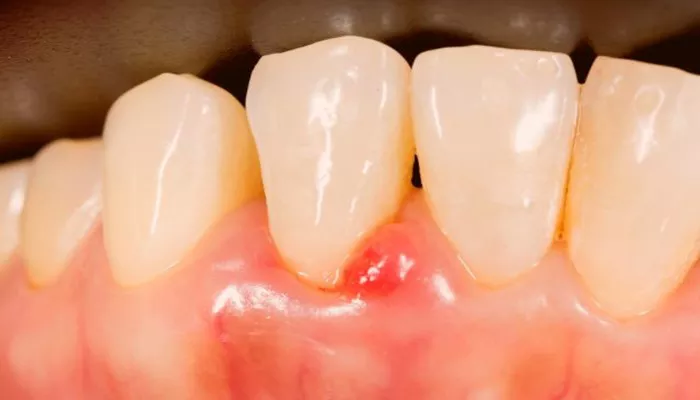Trench mouth, also known as necrotizing ulcerative gingivitis (NUG), is a severe bacterial infection of the gums. It causes painful gum inflammation, ulcers, and tissue death. This condition is more aggressive than typical gum disease and requires prompt treatment to prevent serious complications.
Historical Background
The name “trench mouth” originated during World War I when soldiers in trenches developed this painful gum infection under stressful and unhygienic conditions. Today, it still occurs but mainly in individuals with poor oral hygiene or weakened immune systems.
Causes of Trench Mouth
Bacterial Infection
Trench mouth is caused by an overgrowth of harmful bacteria in the mouth, especially anaerobic bacteria such as Fusobacterium and Prevotella. These bacteria invade the gums and cause severe inflammation and tissue necrosis.
Poor Oral Hygiene
Failing to maintain proper oral hygiene allows plaque and bacteria to accumulate. This buildup triggers gum inflammation and makes the gums vulnerable to infections like trench mouth.
Stress and Immune Suppression
High levels of physical or emotional stress can weaken the immune system. This reduced defense makes it easier for bacteria to cause aggressive infections in the gums.
Smoking and Tobacco Use
Smoking reduces blood flow to the gums and impairs healing. Tobacco use also encourages bacterial growth that leads to necrotizing infections like trench mouth.
Nutritional Deficiencies
Deficiencies in vitamins, especially vitamin C and B-complex vitamins, can weaken gum health and immune response. This increases susceptibility to infections, including trench mouth.
Existing Gum Disease and Dental Procedures
Patients with untreated periodontitis or advanced gum disease have compromised gum tissues that bacteria can easily infect. Additionally, recent tooth extractions or oral surgeries can create open wounds that become infected if proper care is not taken.
Symptoms of Trench Mouth
Severe Gum Pain
The gums become intensely painful, often described as sharp or burning. This pain worsens with chewing and brushing.
Ulcers and Necrosis
Trench mouth causes ulcerations on the gum surface. The tissue appears gray or yellow due to necrosis, or tissue death, which is a hallmark sign.
Bad Breath and Taste
The infection produces a foul odor and metallic taste in the mouth, commonly known as halitosis.
Gum Bleeding and Swelling
Bleeding occurs spontaneously or when touched. The gums are red, swollen, and inflamed, indicating active infection and immune response.
Fever and Malaise
In some cases, systemic symptoms like fever, fatigue, and swollen lymph nodes develop, signaling that the infection may be spreading.
Diagnosis of Trench Mouth
Clinical Examination
A dentist or periodontist will look for typical signs such as gum ulcers, necrotic tissue, and severe inflammation. They will also check for gum recession and pocket depths.
Medical and Dental History
The healthcare provider will inquire about symptoms, oral hygiene habits, smoking status, recent stress, and history of tooth extractions or gum disease.
Laboratory Tests
In rare cases, microbial cultures or blood tests may be ordered to identify specific bacteria or evaluate the immune system’s status.
Treatment of Trench Mouth
Professional Cleaning and Debridement
The primary treatment involves thorough cleaning of the affected areas to remove plaque, tartar, and dead tissue. This process helps stop the bacterial infection from spreading.
Antibiotic Therapy
Doctors often prescribe antibiotics like metronidazole or penicillin to combat anaerobic bacteria causing the infection.
Pain Management
Pain relievers such as ibuprofen or acetaminophen help reduce discomfort and inflammation.
Improving Oral Hygiene
Patients must adopt strict oral hygiene practices, including gentle brushing, flossing, and use of antimicrobial mouth rinses, to prevent recurrence.
Addressing Contributing Factors
Smoking cessation, stress management, and proper nutrition are crucial. If recent tooth extractions or dental surgeries contributed to the infection, special care and follow-up are necessary.
Surgical Intervention
In severe cases with significant tissue destruction, surgical removal of necrotic tissue or gum grafting may be required to restore healthy gum architecture.
Complications of Untreated Trench Mouth
Spread of Infection
If untreated, the infection can spread to other parts of the mouth, jawbone, or even the bloodstream, leading to serious health risks.
Tooth Loss
Severe gum damage and bone loss may cause teeth to loosen and eventually fall out.
Chronic Gum Inflammation
Persistent inflammation leads to ongoing pain, swelling, and risk for other periodontal diseases.
Prevention of Trench Mouth
Maintain Excellent Oral Hygiene
Brush at least twice daily with fluoride toothpaste and floss regularly. Use antimicrobial mouth rinses if recommended by a dentist.
Regular Dental Visits
Professional cleanings and checkups help catch early signs of gum disease and prevent infections.
Manage Risk Factors
Quit smoking, manage stress, and eat a balanced diet rich in vitamins to support gum health and immune function.
Proper Care After Dental Procedures
Follow all post-operative instructions carefully after tooth extractions or oral surgeries to reduce infection risks.
Conclusion
Trench mouth is a severe and painful gum infection caused by bacterial overgrowth, poor oral hygiene, stress, and other factors. It is closely linked to gum inflammation and can complicate dental procedures such as tooth extractions. Early diagnosis and prompt treatment are critical to prevent serious complications like tooth loss and spreading infection.
Maintaining good oral hygiene, managing risk factors, and regular dental care are essential to prevent trench mouth and maintain healthy gums.

